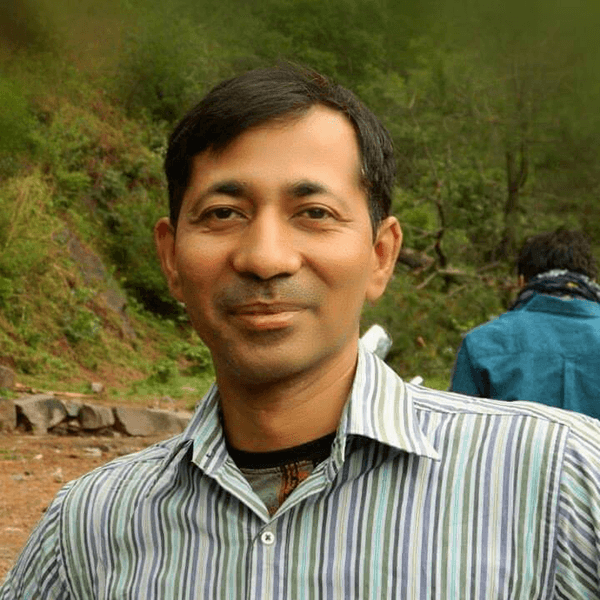 Good things are growing at Lethbridge College, and Jagvir Singh is looking to make it bloom as a hub for applied research.
Good things are growing at Lethbridge College, and Jagvir Singh is looking to make it bloom as a hub for applied research.
Singh joined Lethbridge College as the director of the Centre for Applied Research and Innovation last March. He brings with him extensive experience building partnerships with industry and researchers, first as a scientist with the Council for Scientific and Industrial Research in India and, most recently, at the University of Alberta’s Research Services Partnerships Team. He’s also a scientist in his own right with a background in nanotechnology.
Central to Singh’s vision for the centre’s future is building on the college’s current strengths in agriculture and sustainable food production, as well as its robust partnerships with industry.
To that end, he says the centre is developing a proposal for the Canada Foundation for Innovation’s College-Industry Innovation Fund. If successful, the proposal could bring in between $2.5 and $3 million in funding and support efforts to build new partnerships with industry and government.
“We are presently brainstorming different ideas among the researchers and deans before finalizing the proposal to put forward a solid application in the spring,” Singh says.
Currently, much of the college’s applied research muscle focuses on the Aquaculture Centre of Excellence and the Mueller Research Chair in Irrigation, the college’s first endowed applied research chair. Long-term, Singh also wants to see the college advance research projects in other areas, such as microbiology, early childhood education, and health and wellness.
Singh also wants to find ways to better engage the college’s faculty and staff to create opportunities for these employees – who at a community college don’t have the same research demands or dedicated time for research that their counterparts at a four-year university would have – to create their own research projects. In the end, this would result in building more capacity for applied research across campus, while providing students and employees with opportunities to work with industry partners to solve the questions applied research projects ask.
“Lethbridge is very rich academically,” Singh says, and there are researchers and projects at a variety of stages. “We have those who are just starting to explore research projects, then we have those who are already working in their area who need support to be taken to the next level. That support comes in various forms and stages, from the writing of the research proposal to identifying potential industry partners or funding opportunities.”
“We’re setting the stage not just for more sustainable agriculture here, but also for space colonization. It may sound crazy now, but if you recycle waste, water nutrients, even carbon dioxide, you can use plants and produce food anywhere.”
{ Nick Savidov }
As he settles into his new role, Singh says he looks forward to immersing himself in the college’s applied research efforts. “In my previous role [with the University of Alberta], I was not always working on the full continuum of a research project,” says Singh. “Here, I get to be involved with every step, from the inception of an idea to the delivery of the project.”
Moving to a smaller community has also meant some adjustments for Singh on a personal level: his wife Geeta has remained in Edmonton for the time being, while his son Harsh has joined him in Lethbridge to attend high school. He looks forward to having the whole family in Lethbridge as soon as possible.
“I knew almost nothing about Lethbridge before I first came here, but I’ve found the people here are more friendly and approachable and you feel more supported,” Singh says. “It’s a dramatic change, but it’s a positive one and I feel more involved and engaged in the work and community.”



